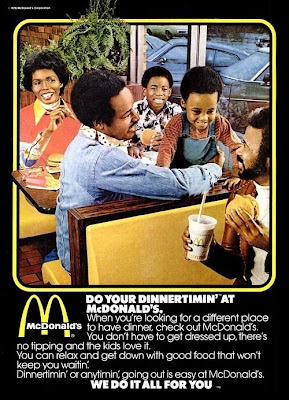Advertising Age reported Havas is shuttering multicultural unit Totality after less than a year of operation. According to “a source familiar with the effort,” Havas will simply integrate multicultural initiatives into White agencies including Euro RSCG and Arnold. Only in the advertising industry does integration mean internal segregation—or disintegration, if the multicultural projects are either handled by White staffers or outsourced. In this instance, no one bothered to say they would take a cross-cultural approach.
Not sure what to make of the scenario. Given the alleged rising interest in wooing Latino audiences, you’d think launching an enterprise like Totality would be a slam dunk—or easy goal, to use a fútbol term. Maybe it shows the difficulty of generating profit in the multicultural marketing arena. It’s tough to succeed without a major client from a major category serving as a cash cow. The problem is, while minority segments are growing in the U.S., advertisers are still not dedicating adequate resources to target the groups. Hell, most brands are not engaging multicultural shops at all. How many clients think multicultural marketing equals translating the White campaign and/or seeding colored people into the commercial casting? How many clients think multicultural marketing is a waste of time? And how many clients never even think of multicultural marketing?
It also doesn’t help when a multicultural unit is within or directly tied to a White agency, as White leaders remain culturally clueless and politically paranoid about losing billings to non-White efforts. In the end, it’s clear who has
totality control in such matters.Havas Closes Struggling Multicultural Unit Totality
Agencies Will Handle Own Multicultural Work; Leo Olper and Mauricio Galvan Seek New Opportunities
By Laurel Wentz
Havas is closing down Totality, the multicultural unit the company officially started in October 2011 and based at the New York office of Arnold Worldwide.
A source familiar with the effort said that after trying to create a broader multicultural offering, Havas decided it would be better to integrate multicultural work in operating companies such as Euro RSCG and Arnold rather than add another layer. The person pointed out that agencies are increasingly integrating what used to often be separate services, such as digital and shopper marketing, and now perhaps Hispanic.
Havas hired two Hispanic experts, Leo Olper and Mauricio Galvan, from Hispanic agencies Lapiz and Vidal Partnership, back in April 2010 to reinvent the company’s foundering Euro Latino unit. Not much happened for the next 18 months, and last October the company announced Totality as a branded, multicultural offering. Messrs. Olper and Galvan became CEO and chief creative officer, respectively, and were joined by Alicia De Armas, who worked on Hispanic business at Euro RSCG, and Reginald Osborne, to spearhead African-American initiatives. Mr. Osborne also continued his existing role as senior VP-director of multicultural marketing at Arnold, where he led multicultural efforts for McDonald’s.
Totality has won little in the way of new business. For Ad Age’s annual Agency Report, Totality reported winning five new accounts between May 2011 and January 2012. Three were pro bono efforts, and two were local McDonald’s assignments in Boston and Washington D.C.
Only about half a dozen people worked at Totality, including the original four employees. Havas is believed to be discussing possible opportunities for Mr. Olper and Mr. Galvan within the company’s agencies, but the pair are actively job hunting and hope to stay in New York and possibly join a new agency together.
The source familiar with the matter said Arnold already has about 20 people who do multicultural work for agency clients, including McDonald’s and Brown-Forman, and that a somewhat smaller number of people do multicultural work within Euro RSCG.
General-market agencies have a growing interest in capturing their clients’ Hispanic business, but often struggle, whether they try to set up a separate unit, as Havas did, or integrate the business within the agency, as Havas now intends to do. KBS&P tried to build up a separate multicultural unit called Ramona, but effectively closed it down in December 2012 after Ramona lost is main client, Tecate.


















































